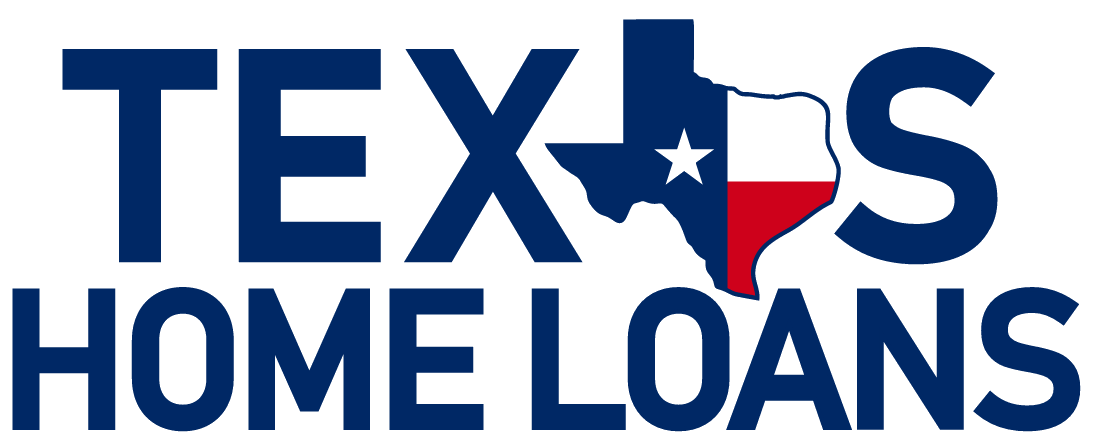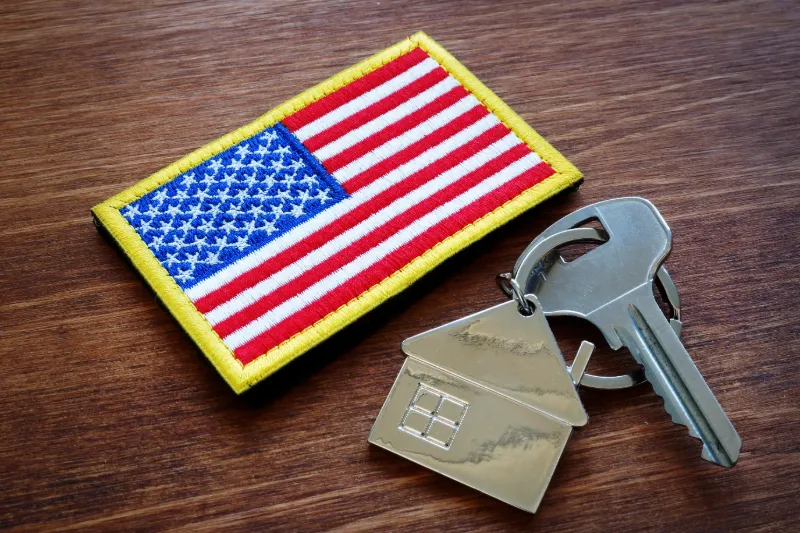When it comes to financing a home in Texas, I've seen many buyers struggle with…
Texas VA vs FHA Home Loan: Choosing the Right Option
If you plan to buy a new home in Texas but are unsure which loan type to choose, VA and FHA loans are two popular options. Both have unique benefits. We will discuss both loan types, including eligibility criteria, benefits, refinancing options, costs and more. Our aim is to help you understand the key differences between VA and FHA loans so that you can make an informed decision based on your specific needs. We will also provide tips on how to evaluate the costs associated with each loan type and factors to consider when choosing a loan. So keep reading to find out if a VA or FHA loan is right for you in Texas.
Understanding VA and FHA Home Loans
VA loans cater specifically to veterans, service members, and their spouses, offering advantages such as no down payment requirements. On the other hand, FHA loans, insured by the Federal Housing Administration, provide options for buyers with lower credit scores, offering down payment requirements as low as 3.5%. VA loans are backed by the Department of Veterans Affairs, while FHA loans are backed by the federal government, providing financial assistance to homebuyers. These two types of loans are essential for potential homeowners to understand, especially when considering the best fit for their specific financial situation and eligibility criteria.
VA Loans
VA loans, a type of loan designed for eligible service members and veterans, offer competitive interest rates and lower credit score requirements. These loans also do not require private mortgage insurance, making them an attractive option for those who qualify. Additionally, the VA loan program allows for streamline refinancing, providing benefits such as lower monthly payments and interest rates. While VA loans have no maximum loan amount, they do have va funding fees, which can be included in the loan amount, offering flexibility for veterans and service members.
FHA Loans
FHA loans provide accessible options for a wider range of homebuyers, including those with lower credit scores. These loans feature mortgage insurance premiums, benefiting homebuyers with limited down payment options or lower credit scores. Additionally, FHA loans offer specific loan limits based on the type of home and location, catering to buyers within certain price ranges.
Eligibility Criteria for VA and FHA Loans
In determining eligibility for VA loans, service requirements, credit score, and property occupancy play crucial roles, providing opportunities for veterans, service members, and their spouses. On the other hand, FHA loan eligibility is based on credit score, employment, income, and debt-to-income ratio, offering options for homebuyers with lower credit scores or limited down payment options. Both loan types open doors for different sets of borrowers, making it essential to understand the specific qualifying criteria for each.
Eligibility for VA Loans
Ensuring eligibility for VA loans involves meeting certain criteria. This type of loan is available to veterans, active-duty service members, National Guard members, and reservists, as well as certain surviving spouses. To access its benefits, a valid Certificate of Eligibility is required along with a minimum credit score and service requirements. VA loan rates and the VA funding fee are aspects that can vary, making it essential to understand the eligibility requirements to make an informed decision when working with mortgage lenders.
Eligibility for FHA Loans
FHA loan eligibility encompasses specific credit score requirements, employment history, and a stable income, providing broader access to mortgage options for potential homeowners. This type of loan is available to the general public, particularly benefiting first-time homebuyers, low-to-moderate-income individuals, and those with lower credit scores, offering affordable home financing solutions. FHA mortgage insurance, provided by the federal agency, ensures that mortgage lenders such as private banks and Rocket Mortgage can extend these opportunities to a wider demographic.
Comparing VA and FHA Loan Benefits
VA and FHA loans each offer unique benefits catering to different homebuyers’ needs. VA loans provide valuable options for eligible service members, veterans, and their families, including no down payment requirements, no private mortgage insurance, and competitive interest rates. On the other hand, FHA loans offer accessibility and affordability to a wide range of homebuyers through lower credit score requirements, options for lower down payments, and mortgage insurance premiums. Both types of loans are backed by federal agencies and are available through approved mortgage lenders.
Loan Limits
When considering loan limits, it’s essential to understand that VA loans have no maximum loan amount. This provides flexibility for eligible veterans and service members, potentially allowing for higher loan amounts based on the purchase price of the home and the borrower’s financial situation. On the other hand, FHA loans have specific loan limits based on the type of home and location, offering options for homebuyers within certain price ranges, ensuring accessibility to affordable housing options within designated areas.
Interest Rates
When considering different types of loans, it’s essential to understand the interest rates involved. VA loans offer competitive rates, potentially lower than conventional mortgages, providing cost-saving opportunities for eligible service members and veterans when purchasing or refinancing a home. On the other hand, FHA loans also provide competitive interest rates, making homeownership more attainable for a wider range of individuals and families, including those with lower credit scores. These affordable financing options play a crucial role in expanding accessibility to mortgage loans across the United States.
Down Payment Requirements
When considering the type of loan, it’s essential to understand the down payment requirements for VA and FHA loans in Texas. VA loans offer no down payment requirements, providing financial flexibility and accessibility to homeownership benefits for eligible veterans and service members. On the other hand, FHA loans have down payment requirements as low as 3.5% of the purchase price, making homeownership more achievable for many buyers by allowing lower initial costs and broader accessibility to affordable housing options.
Mortgage Insurance
Understanding the role of mortgage insurance is crucial when exploring the differences in requirements for FHA and VA loans. Mortgage insurance significantly impacts monthly payments, loan amounts, and interest rates for both types of loans. Borrowers can benefit from mortgage insurance by gaining access to mortgage loans through private banks, federal agencies, or even online lenders like Rocket Mortgage. Moreover, a closer look at mortgage insurance highlights its impact on borrowers with lower credit scores.
Insights into Refinancing Options for Both Loans
Refinancing options are available for both FHA and VA loans. FHA loans offer the benefit of streamline refinance, simplifying the process and potentially lowering monthly payments. On the other hand, VA loans present the advantage of the Interest Rate Reduction Refinance Loan (IRRRL), designed to reduce interest rates and monthly payments. Refinancing provides an opportunity to lower monthly payments for both types of loans while considering specific requirements and benefits associated with each.
Refinancing an FHA Loan
Refinancing an FHA loan involves exploring options for competitive interest rates, understanding the process including credit score requirements, and discovering the benefits of streamline refinance for homeowners. It can help lower monthly mortgage payments and provide insights into available refinancing options in Texas. Homeowners should consider this type of loan when looking to lower scores through FHA mortgage insurance. This federal agency ensures mortgage loans through private banks, offering a closer look at urban development in the United States.
Refinancing a VA Loan
Refinancing a VA Loan provides service members in Texas with various options to improve their financial situations. VA loan refinance programs, like the IRRRL, offer benefits such as lower interest rates and monthly payments. The process is streamlined, and requirements are advantageous, making it an attractive option for eligible individuals. By taking a closer look at VA loan rates, service members can understand how refinancing can lead to significant savings and improved financial stability.
Evaluating Costs Associated with VA and FHA Loans
When evaluating the costs associated with VA and FHA loans, it’s essential to understand the various fees and closing costs involved. For VA home loans in Texas, there are specific fees and a funding fee that impacts the loan amount. On the other hand, obtaining an FHA loan incurs costs such as mortgage insurance premiums. These financial implications play a crucial role in helping home buyers make informed decisions when choosing the type of loan that suits their needs. Taking a closer look at these costs can guide borrowers in selecting the most suitable mortgage loan.
Fees and Closing Costs for VA Loans
Understanding the financial implications of VA loans is crucial for potential homebuyers. In Texas, VA home loans entail a funding fee, impacting the overall loan cost. Additionally, there are closing costs to consider when comparing VA loans to FHA loans. Certain service members may be eligible for exemptions from funding fees, offering substantial benefits. Various factors contribute to the total costs of VA loans, making it essential for borrowers to have a comprehensive understanding of these expenses.
Fees and Closing Costs for FHA Loans
When considering FHA loans, it’s crucial to understand the upfront and annual mortgage insurance premiums (MIP). These costs significantly impact the total loan amount. Additionally, exploring the closing costs and comparing them to VA loans can provide valuable insights. In Texas, there are options for financing these closing costs. Factors such as credit scores, loan amount, and property location contribute to the overall FHA loan costs. Taking a closer look at these fees and costs can help borrowers make informed decisions when choosing this type of loan.
Deciding Between a VA and FHA Loan
When deciding between a VA and FHA loan, it’s essential to consider eligibility requirements, benefits, and limitations. VA loans provide advantages for veterans and active-duty service members, including no down payment and lower interest rates. On the other hand, FHA loans benefit first-time homebuyers and individuals with lower credit scores. Understanding the differences in loan limits and interest rates for both types of loans is crucial. By evaluating these key factors, borrowers can make informed decisions about the type of loan that best suits their needs.
Factors to Consider When Choosing a Loan
When comparing VA and FHA home loans, it’s important to understand how credit scores impact the type of loan available. In Texas, both loan options have minimum credit score requirements, and VA loans offer benefits for primary residence purchases. FHA loans, on the other hand, provide options based on the type of home being purchased. Considering these unique benefits and criteria can help borrowers make an informed decision when choosing between VA and FHA loans.
How Texas Home Loans Can Help
When considering home loans in Texas, understanding the types of loans available is essential. Texas home loan lenders offer VA and FHA loan programs with competitive interest rates and loan terms. These loans cater to different needs, from lower credit scores to veterans and first-time home buyers. Private lenders, credit unions, and banks in Texas also provide mortgage loans. Exploring these options can give home buyers a closer look at their choices and help them make informed decisions when purchasing a home in the United States.
Is a VA Loan Right for You in Texas?
Considering a VA loan in Texas? The Department of Veterans Affairs backs VA loans, providing benefits like lower credit score requirements. Eligible service members, veterans, and surviving spouses can qualify. Competitive interest rates and no down payment or private mortgage insurance make VA loans an attractive option.
Frequently Asked Questions
What is the difference between VA and FHA loans?
VA and FHA loans differ in eligibility requirements and mortgage insurance. VA loans are for veterans and active-duty military members, while FHA loans are available to anyone. VA loans don’t require a down payment or mortgage insurance, while FHA loans require a minimum down payment of 3.5% and have both upfront and annual mortgage insurance premiums.
Who qualifies for a VA loan in Texas?
To qualify for a VA loan in Texas, individuals must be active duty service members, veterans, or certain surviving spouses. Eligibility is determined based on factors such as length of service and discharge status. While there are no minimum credit score requirements for VA loans, lenders may have their own standards. VA loans can be used to purchase or refinance a primary residence.
Who qualifies for an FHA loan in Texas?
To be eligible for an FHA loan in Texas, your credit score must be at least 580 and your debt-to-income ratio should be less than 43%. Additionally, you need to make a down payment of at least 3.5% and the property being purchased must serve as your primary residence.
Conclusion
To sum up, when choosing between VA and FHA loans in Texas, it’s important to take into account your individual requirements and financial situation. VA loans offer advantages to qualified veterans and military personnel, including no down payment and lower interest rates. FHA loans provide flexibility with credit requirements, making them suitable for first-time homebuyers or individuals with lower credit scores. Your decision should be based on your specific objectives. A mortgage professional can provide guidance to help you make an informed choice. Texas Home Loans specializes in assisting borrowers with VA and FHA loans to ensure a smooth process. Get in touch with us today to discover more about realizing your goal of homeownership.






